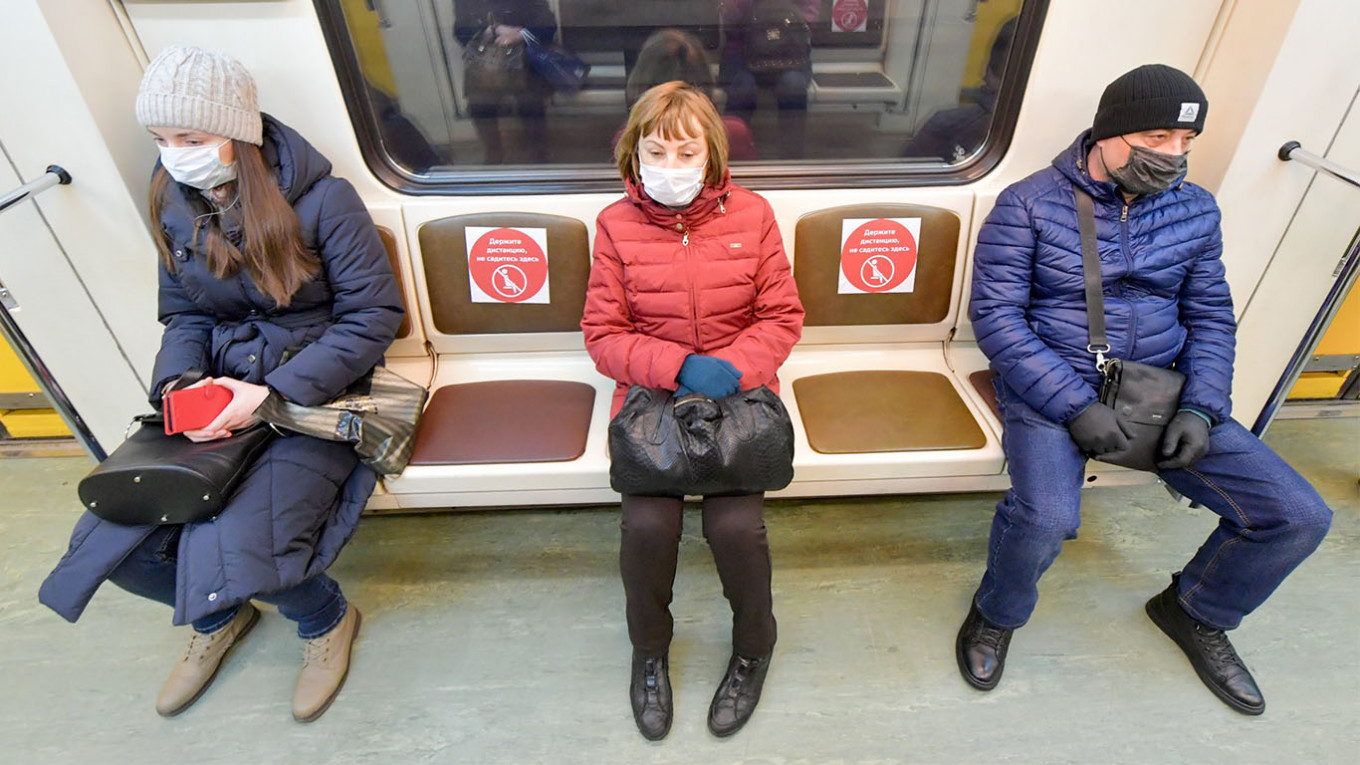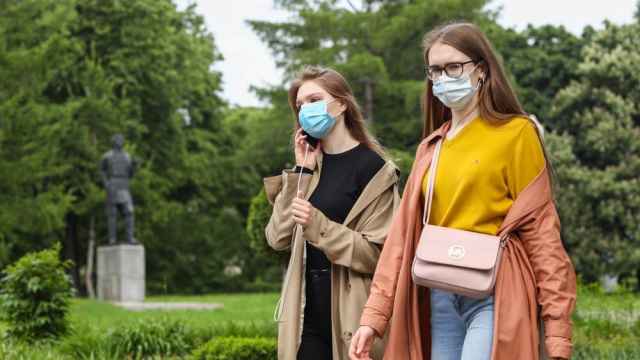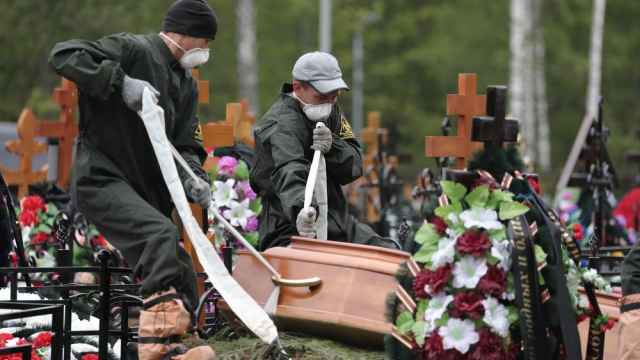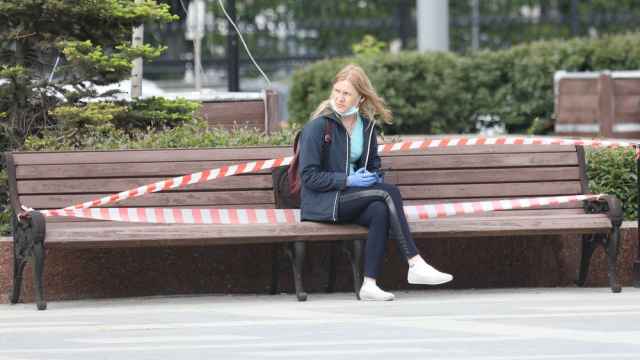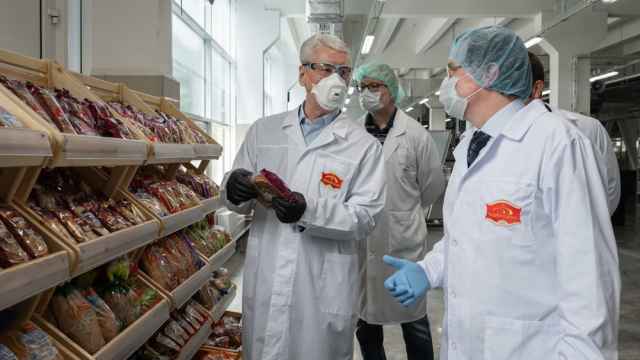Moscow enacted a strict self-isolation order this week as city authorities seek to clamp down on the coronavirus pandemic that has infected nearly 3,000 of the Russian capital’s residents.
Mayor Sergei Sobyanin on Thursday extended the quarantine until at least May 1, meaning 12 million people will be expected to stay in their homes for the next month with few exceptions.
Here’s an overview of what the citywide stay-at-home order means for Muscovites’ everyday life:
Can I leave my house?
Residents can only leave their homes to go to the grocery store or pharmacy, to go to work if their job requires them to work outside the home, to take out the trash or to walk pets less than 100 meters from their building. All other outdoor activity is banned, including jogging or exercising near your house.
People can also leave the house for medical emergencies, Sobyanin’s decree says, although elderly people are asked to call a doctor to their home instead.
Anyone who leaves their home is asked to maintain a space of at least 1.5 meters between themselves and other people.
Do I need a pass to leave my house?
No. While Moscow City Hall was considering implementing a QR code pass system that would require people to obtain the authorities' permission to go outside, Sobyanin later said the city will hold off on such a system unless the coronavirus situation worsens or the number of self-isolation violations rises.
City authorities will monitor the movements of coronavirus patients being treated at home using a smartphone app.
Which stores are still open?
Grocery stores, pharmacies and shops deemed to be selling “essential” goods — such as pet stores and telecom stores — will continue to operate.
All shops citywide are ordered to implement safety measures such as placing special markings to indicate a safe amount of distance between customers.
Is public transport still running?
Yes. The city’s below- and aboveground public transport continues to operate on a regular basis. Taxis are also still available. There are no restrictions imposed on corporate vehicles.
The validity of all unused transport tickets will be extended until after May 1 as long as the tickets were used less than six times during the self-isolation regime.
Can I use my personal car?
Yes, with some stipulations. People are still allowed to drive to get groceries or to go to other stores if they can’t be reached on foot. Traveling by car to another part of the city or outside the city is only allowed for “serious” needs.
Moscow residents may now only ride together in a private vehicle if they live at the same address, Moscow City Duma speaker Alexei Shaposhnikov said.
Police may randomly stop cars to run an ID check and ask drivers for the purpose of their trip. Those found to be violating the self-isolation order by using a personal vehicle will face a 5,000 ruble ($63) fine and their car could be impounded.
Can I leave or enter Moscow?
Yes. There are currently no restrictions on leaving or entering the city.
Are gas stations open?
Yes.
Can I visit my relatives or friends at their apartments?
No.
Can I have food delivered to my apartment?
Yes. Food and grocery delivery services are continuing to operate as normal.
Can I go to work?
People whose jobs require them to leave their homes may do so. Everyone who is able to work remotely is required to work from home.
Do I have to pay my utility bills?
Yes, with some exceptions. Elderly residents and people with chronic diseases will have their late utility payment fines canceled, for example.
Can I go to the bank?
Banks will continue to operate as usual, but some locations may work with reduced hours as more people use online banking. Some banks have also moved some of their staffers to remote work, possibly prolonging wait times.
Are marriages and divorces still being registered?
Yes. Registration dates can also be rescheduled online if needed.
Can I take my pet to the veterinarian?
Veterinary clinics are closed for regular appointments but continue to operate on an on-call basis for emergencies. Pet owners can sign up for a public clinic through the city’s mos.ru portal or through the "Moscow Public Services" smartphone app.
What are the punishments for violating self-isolation?
Sobyanin has signed a city ordinance imposing fines for those found to be violating the city's self-isolation orders. Individuals will be fined up to 4,000 rubles ($50) for first-time offenses and up to 5,000 rubles ($63) for repeat offenses. Businesses will be fined up to 40,000 rubles ($500) for violating the order. Legal entities will be fined up to 300,000 rubles ($3,800) for first-time offenses and up to 500,000 rubles ($6,300) for repeat offenses.
A federal law signed by President Vladimir Putin punishes quarantine violators by up to seven years in jail if the violation leads to multiple deaths.
How long will this last?
According to the mayor’s decree, these restrictions are indefinite. "So far, there is no understanding of what date this high-alert mode will end," Sobyanin's spokeswoman Gulnara Penkova told the RBC news website.
A Message from The Moscow Times:
Dear readers,
We are facing unprecedented challenges. Russia's Prosecutor General's Office has designated The Moscow Times as an "undesirable" organization, criminalizing our work and putting our staff at risk of prosecution. This follows our earlier unjust labeling as a "foreign agent."
These actions are direct attempts to silence independent journalism in Russia. The authorities claim our work "discredits the decisions of the Russian leadership." We see things differently: we strive to provide accurate, unbiased reporting on Russia.
We, the journalists of The Moscow Times, refuse to be silenced. But to continue our work, we need your help.
Your support, no matter how small, makes a world of difference. If you can, please support us monthly starting from just $2. It's quick to set up, and every contribution makes a significant impact.
By supporting The Moscow Times, you're defending open, independent journalism in the face of repression. Thank you for standing with us.
Remind me later.


